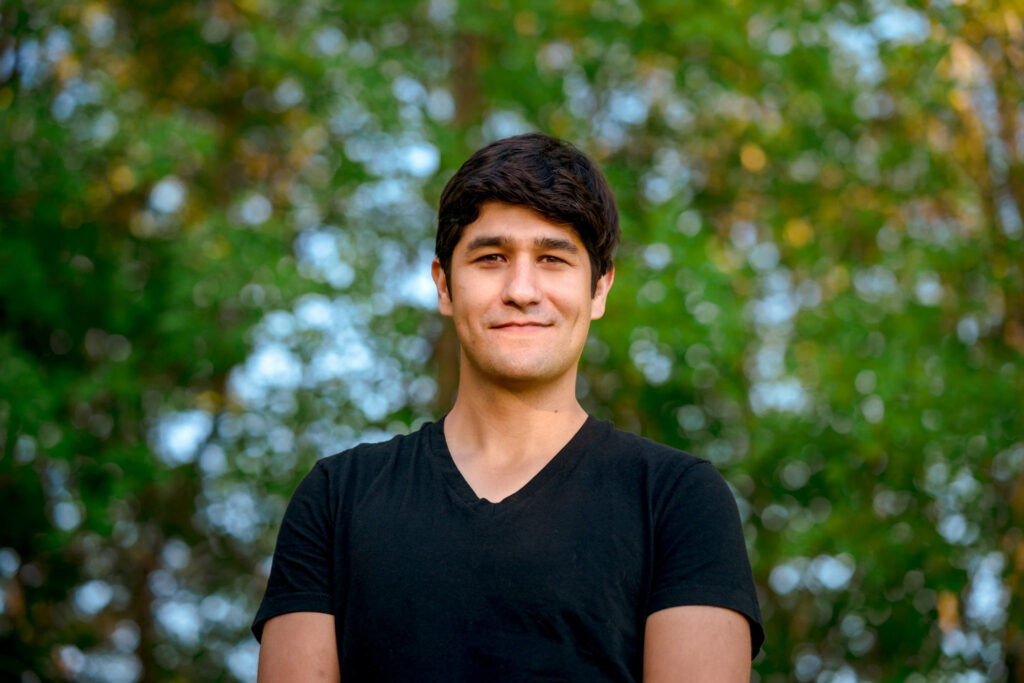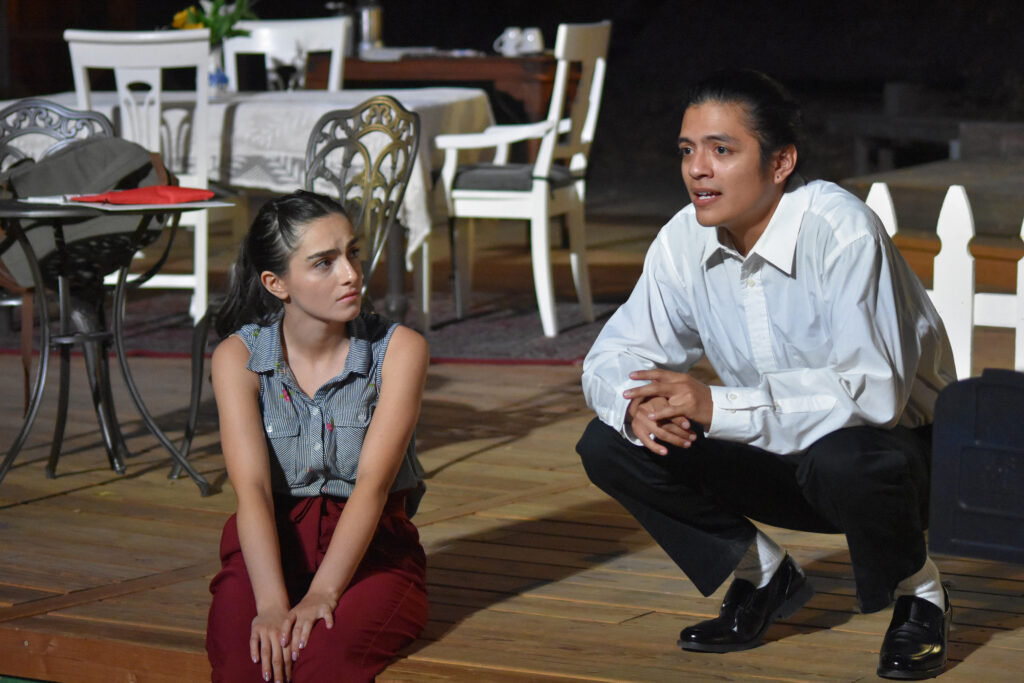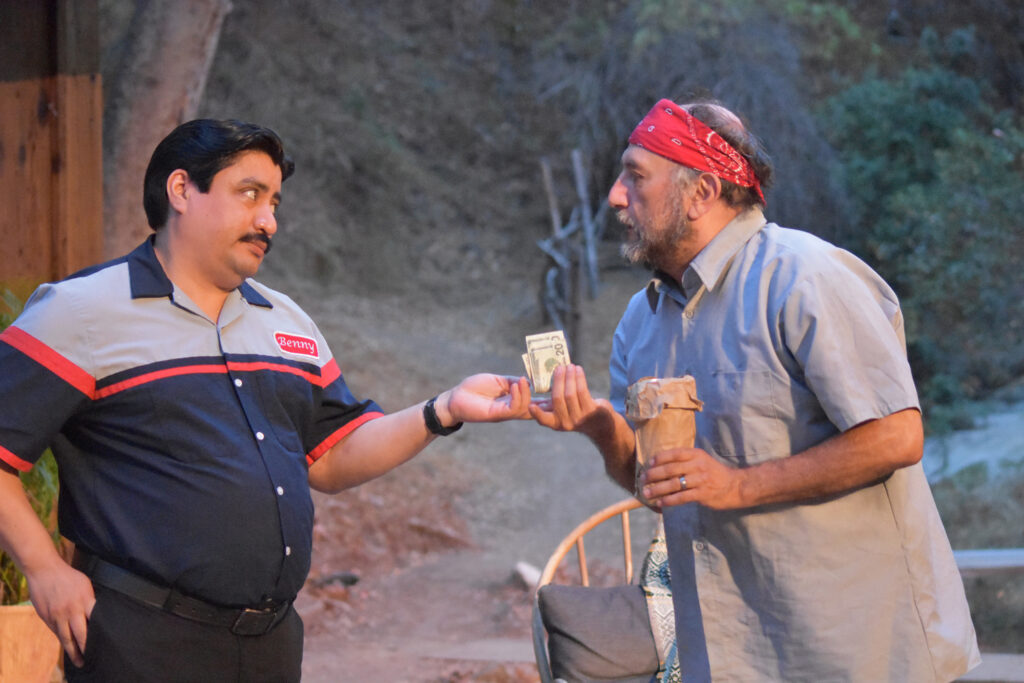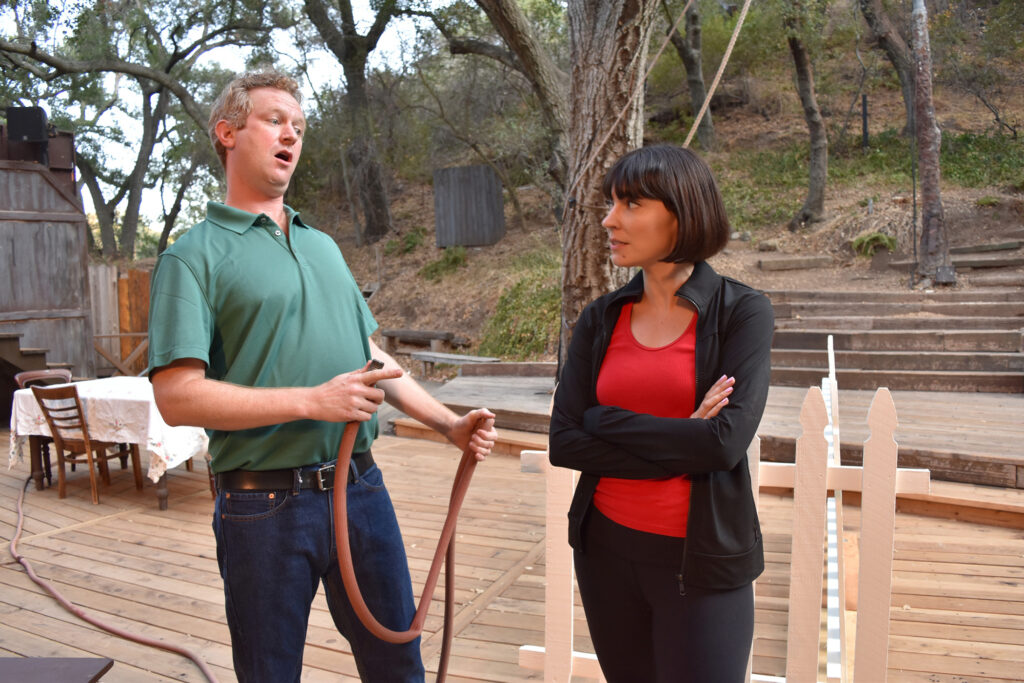Review: THE LAST, BEST SMALL TOWN at Will Geer's Theatricum Botanicum
World Premiere! Plays through Nov. 6 at Will Geer's Theatricum Botanicum
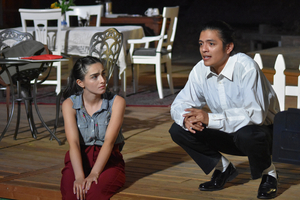
Welcome back, regional theatre! For the past 16 months, we've been sporadically seeing a variety of virtual and drive-in plays, musicals, and revues, but it's great to get back to live, in-person theatre, so VC On Stage is delighted to be back reporting on shows being presented in your back yard.
Playwright John Guerra (photo by Rebecca Aranda)
The Last Best Small Town, written by local playwright John Guerra, can best be compared to Thornton Wilder's Our Town, a depiction of everyday people in a small town that uses metatheatrical devices to tell its story. Guerra admits being influenced by Wilder's play but wanted to write something closer to the world that he grew up in, instead of Wilder's fictional Grover's Corners of the late 1930s. The Last Best Small Town takes place in Fillmore, California, an actual small, semi-rural town in the heart of Ventura County where whites and Latinos coexist, living side by side. As a half-Mexican Southern California native, Guerra was able to translate Wilder's depiction of small-town life into a story familiar to him and the result is a well-written, superbly performed play whose overriding themes range from love and hope to tragedy, despair, regret, and the consequences of decisions made. The show is being given its world premiere at Will Geer's Theatricum Botanicum in Topanga Canyon through November 6.
The Geer's outdoor theatre is ideal for a play like this. Its expansive, woodsy stage is a dream for blocking scenes with its terraced space which includes several sets of staircases, two wooden structures, and a picturesque mountain backdrop. As in Our Town, Guerra's play uses a narrator, in this case, a character who introduces himself as "the playwright" (who many in the audience actually thought was Guerra himself). Leandro Cano plays the part with engaging humor, addressing the audience and introducing each character, in one instance seamlessly becoming a real estate broker in the story.
The story begins in 2005 as the Playwright introduces two neighboring families, the Millers and the Gonzalezes. Hank Miller works as editor of the Fillmore Gazette, but has problems paying his bills. Still, the Miller family, consisting of his wife Willow and teenaged children Marcus and Maya, seemingly live a happy life. Marcus, who is never seen, has enlisted in the Marine Corps, leaving his boyhood friend and neighbor, Elliot Gonzalez, wondering about his future as he prepares his own high school graduation speech.
Elliot's father Benny commutes by bus to his job at a car dealership while his mother Delores (known to all as "Della") adds income to the family by working as a maid at the Fillmore Best Western, in addition to cleaning the Millers' home on weekends. It is apparent at the outset that Benny considers Della's work to be demeaning and resents Willow Miller treating her like an underling. Rounding out the Gonzalez clan is Benny's tippling, free-loading father Chuy, who nevertheless is close with his grandson, Elliot.
Elliot is the first member of his family who has a chance to attend college but is filled with self-doubt, fearful of letting his parents down and wasting the money they are saving for his tuition. Elliot's decision to go to college or stay in Fillmore is tempered by his affection for 17-year-old Maya Miller, who he discovers has been in love with him since they were children growing up together. When Maya has to make a similar decision the following year, it affects both of their lives permanently. What happens to the Miller and Gonzalez families reflects decisions being made by Americans everywhere. It takes courage, self-confidence, and maturity to make a decision that involves uprooting your life and moving away, but for the two families in the play, the decisions they make result in painful, even tragic consequences.
A few of the plot developments are predictable, including one in the final scene that was intended as an unexpected twist but instead was easily telegraphed, but generally, the play is warm and engaging, with each character coming off as likable and sympathetic.
Jordan Tyler Kessler (Maya) and Kelvin Morales (Elliot) (photo by Ian Flanders)
Jordan Tyler Kessler (Maya) and Kelvin Morales (Elliot) are superb in their respective parts and show an easy chemistry as their characters explore each other's feelings. In one remarkable scene, Maya returns from college to revisit her home town and, in her imagination, regresses to childhood, playing her toddler self as she is babysat by the Gonzalezes, contentedly playing with Legos with little Elliot. Both handle their transition to their younger selves seamlessly in this unusual but effective flashback.
Richard Azurdia (Benny) and Miguel Perez (Chuy) (photo by Ian Flanders)
Miguel Perez is a charming rogue as Benny's no-account father Chuy while Katia Gomez and Richard Azurdia play the Gonzalez parents with sympathetic humanity. Both Christopher Wallinger, Hank, whose home life consists mainly of his watering his lawn, and Christine Breihan, as Maya's distracted mother, are also excellent, although their characters need to be drawn out more.
Christopher Wallinger (Hank) and Christine Breihan (Willow) (photo by Ian Flanders)
The overall excellence of the acting masked some problems with Guerra's play, in addition to a few predictable plot twists. Benny Gonzalez's belief that anti-Latino racism has kept his family in a lower-middle-class strata is not fully explored while the Miller parents' characters are broadly drawn and do not give any insight into their own feelings, other than Willow's shame and disappointment at her unexciting life.
The story is ultimately downcast, as none of the characters' decisions turn out to be the right ones, as one of the families is shattered into pieces and the other appears to be destined for sustained desultory mediocrity. Still, this slice of modern life will be meaningful to Ventura County audiences, who will not only see a part of their own world in the story, but might even see a part of themselves as well.
The Last Best Small Town plays through November 6 at the Will Geer Theatricum Botanicum. For information, visit www.theatricum.com or call the box office at (310) 455-3723.
Reader Reviews
Videos


